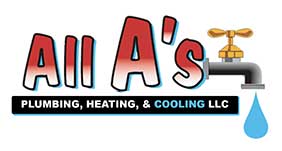When your air conditioner sputters to a halt in the scorching Randolph summer, a wave of panic sets in. The immediate question is always: “Can I fix this myself, or do I need to call in the cavalry?” Both options have their merits and drawbacks, and understanding them can save you a significant amount of money and discomfort.
Tackling an AC repair yourself can be incredibly appealing. The most obvious “pro” is cost savings. Professional service calls often come with hefty fees for diagnosis and labor, not to mention parts markup. If you’re handy and the issue is relatively minor, like a clogged drain line or a dirty filter, you might be able to resolve it with a few basic tools and a quick online search. There’s also the satisfaction of a DIY success – a sense of accomplishment knowing you conquered the problem on your own. Furthermore, immediate gratification is a real factor; you don’t have to wait for a technician’s availability.
However, the “cons” of DIY AC repair can quickly outweigh the benefits. Air conditioning systems are complex, involving refrigerants, high voltage electricity, and intricate components. Without proper knowledge and safety precautions, you risk serious injury from electrical shock or refrigerant exposure. You could also inadvertently cause further damage to the unit, turning a minor issue into a major, more expensive one. Diagnosing the problem accurately can be challenging for an untrained individual, leading to wasted time and money on unnecessary parts. Moreover, many AC parts require specialized tools for installation, and without them, the repair might be impossible or improperly done, potentially voiding your warranty.
On the other hand, hiring a professional AC technician offers peace of mind and expertise. Professionals have the training, experience, and specialized tools to accurately diagnose and repair a wide range of AC issues. They can safely handle refrigerants and electrical components, ensuring the job is done correctly and efficiently. A reputable technician will also offer warranties on their work and parts, providing a safety net if the problem recurs. While the upfront cost is higher, it often prevents costly mistakes and ensures the longevity of your unit.
The main “con” of professional service is, of course, the expense. You’ll pay for their expertise, labor, and overhead. There’s also the inconvenience of scheduling appointments and waiting for their arrival, which can be particularly frustrating during peak season.
Ultimately, the decision hinges on the complexity of the problem and your comfort level with electrical and mechanical systems. For simple maintenance tasks, DIY is a viable option. For anything involving refrigerant, electrical issues beyond a tripped breaker, or if you’re unsure, calling a professional is always the safer and often more cost-effective long-term solution.


Recent Comments